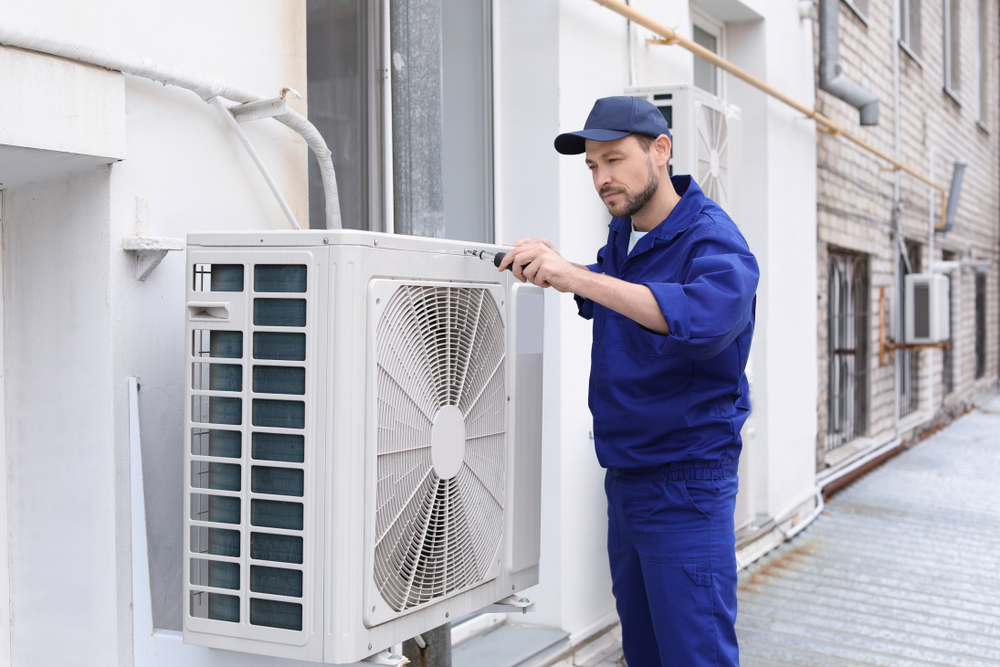
10 Jul Handyman Maintenance for Your Air Conditioner
As Utah’s summer temperatures climb, we’re all looking for ways to keep cool. Your home should be a nice, comfortable oasis. And you should show your appreciation for your air conditioning unit’s hard work with some annual TLC.
Your HVAC is one of the biggest investments in your home. What are you doing to keep its value high? Few people realize that they need to have their AC unit maintained every year in order to keep things running smoothly. While there are some things you can do yourself now and then (like changing the filter,) a handyman or other professional can give your AC unit a maintenance checkup that will keep it functioning better and longer.
Benefits of Yearly Air Conditioning Maintenance
- Longer life for your air conditioning unit
- More effective cooling to keep your home more comfortable
- Energy savings for lower bills over the summer
- Ensured safety for your unit and home
What a Handyman Does During AC Maintenance
When a certified handyman or other professional from Husky property maintenance comes to service your unit, you can expect the following:
- Removing debris from the fan and area surrounding the unit.
- Straightening and cleaning the fins.
- Checking that the unit is level. If shifting soil underneath has caused it to slant, it could shorten the lifespan of the compressor unit inside.
- Cleaning the evaporator coil and drain. Warm external air that the unit sucks in is quickly cooled, which creates condensation. Although the moisture is drained away, this warm and damp environment is ideal for algae growth.
- Changing the filter in order to reduce allergies and dust in your home. Remember that filters should be changed at least twice a year; not just when the unit is serviced.
- Checking refrigerant levels and handling any leaks, drains, replacements, or refills safely, as refrigerant can be a hazardous material, and should never be illegally dumped into the water supply.
- Checking the air flow in the unit to make sure that no part of it is overtaxed, that there are no leaks or broken seals, and that you’re getting the optimal performance.
- Oiling and lubing the motor to keep it running smoothly.
- Checking for wear on belts in the motor.
- Checking the thermostat to make sure that things register, respond, and report accurately.

Sorry, the comment form is closed at this time.